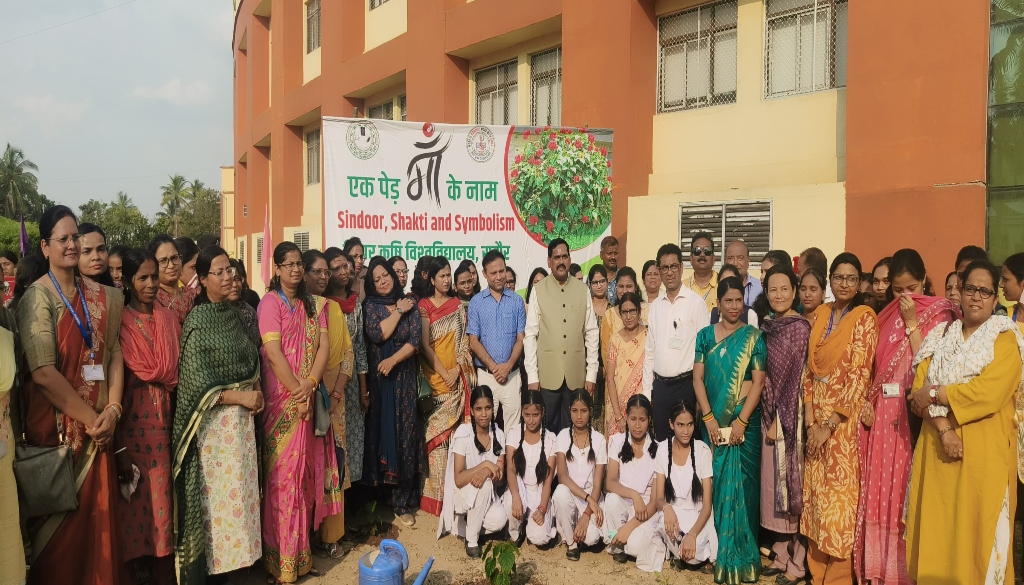
Sabour: On World Environment Day this year, Bihar Agricultural University (BAU) in Sabour undertook a unique plantation drive by planting 200 vermilion plants behind its central library. The event was notable not only for its environmental significance but also for its symbolic connection to Indian culture and women’s empowerment.
Women scientists led the plantation, highlighting the blend of scientific knowledge with traditional values. The vermilion plant, revered both culturally and medicinally across India, embodies a deep relationship between nature, heritage, and female strength.
The district administration’s commitment to the initiative was underlined by the presence of Bhagalpur’s District Magistrate, Dr Naval Kishore Chaudhary, and his wife, Dr Kumari Rajni. The event was presided over by the university’s Vice Chancellor, Dr D R Singh, who emphasised the responsibility of environmental stewardship. “Planting a tree is not only an environmental responsibility but a promise to future generations,” he said. He also praised the women scientists for exemplifying the harmony between tradition and science.
A special presentation titled “Sindoor, Power and Symbolism” provided attendees with insights into the cultural, ecological, and symbolic significance of the vermilion plant, deepening the understanding of the plantation’s purpose beyond conservation.
The event was attended by university officials including deans, directors, administrative officers, heads of departments, scientists, and students. It was organised under the leadership of Dr Shweta Shambhavi, director of student welfare, with media coverage managed by Dr Rajesh Kumar, the university’s public relations officer.
This plantation drive reflects a meaningful effort towards environmental conservation while fostering a sense of responsibility within the academic community and the wider society.





